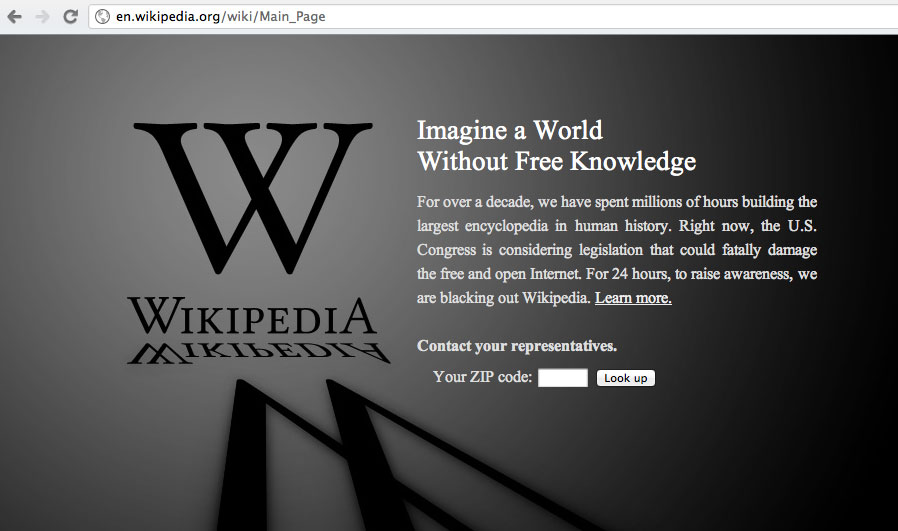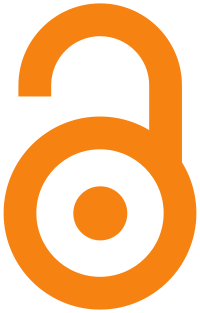Researchers at Northestern University published 29 articles in open-access scholarly journals in 2011. By choosing open access journals over those that are restricted to readers with subscriptions, our researchers are helping to increase knowledge on a global level. In fact, more Northeastern authors published in the open-access journal PLoS ONE than in any other journal, open or subscription-based, in 2011.
Watch for my next post on open-access books produced by Northeastern authors in 2011! For more information about Open Access and why it’s important, check out our research guide on the topic.
Complete list of articles:
(NU authors are listed in bold.)
Altaboli, Ahamed, and Yingzi Lin. 2011. Investigating effects of screen layout elements on interface and screen design aesthetics. Advances in Human-Computer Interaction 2011, 659758. Published online: 2011. http://dx.doi.org/10.1155/2011/659758
Bagrow, James P., Dashun Wang, and Albert-Laszlo Barabasi. 2011. Collective response of human populations to large-scale emergencies. PLoS ONE 6(3), e17680. Published online: March 30, 2011. http://dx.doi.org/10.1371/journal.pone.0017680
Bellon, Marc, Enrique F. Moreno, and Fidel A. Schaposnik. 2011. A note on holography and phase transitions. Advances in High Energy Physics 2011, 917127. Published online: 2011. http://dx.doi.org/10.1155/2011/917127
Benson, Ryan W., Matthew D. Norton, Ida Lin, William S. Du Comb, and Veronica G. Godoy. 2011. An active site aromatic triad in Escherichia coli DNA pol IV coordinates cell survival and mutagenesis in different DNA damaging agents. PLoS ONE 6(5), e19944. Published online: May 17, 2011. http://dx.doi.org/10.1371/journal.pone.0019944
Carneiro, Katia, Claudia Donnet, Tomas Rejtar, Barry L. Karger, Gustavo A. Barisone, Elva Diaz, Sandhya Kortagere, Joan M. Lemire, and Michael Levin. 2011. Histone deacetylase activity is necessary for left-right patterning during vertebrate development. BMC Developmental Biology 11, 29. Published online: May 20, 2011. http://dx.doi.org/10.1186/1471-213x-11-29
Combosch, David J., and Steven V. Vollmer. 2011. Population genetics of an ecosystem-defining reef coral Pocillopora damicornis in the Tropical Eastern Pacific. PLoS ONE 6(8), e21200. Published online: August 9, 2011. http://dx.doi.org/10.1371/journal.pone.0021200
Dauth, Stephanie, Ruxandra F. Sirbulescu, Silvia Jordans, Maren Rehders, Linda Avena, Julia Oswald, Alexander Lerchl, Paul Saftig, and Klaudia Brix. 2011. Cathepsin K deficiency in mice induces structural and metabolic changes in the central nervous system that are associated with learning and memory deficits. BMC Neuroscience 12, 74. Published online: July 27, 2011. http://dx.doi.org/10.1186/1471-2202-12-74
DeMaso, Christina R., Ismar Kovacevic, Alper Uzun, and Erin J. Cram. 2011. Structural and functional evaluation of C. elegans filamins FLN-1 and FLN-2. PLoS ONE 6(7), e22428. Published online: July 25, 2011. http://dx.doi.org/10.1371/journal.pone.0022428
Diaz-Gonzalez, Rosario, F. Matthew Kuhlmann, Cristina Galan-Rodriguez, Luciana da Silva, Manuel Madeira Saldivia, Caitlin E. Karver, Ana Rodriguez, Stephen M. Beverley, Miguel Navarro, and Michael P. Pollastri. 2011. The susceptibility of trypanosomatid pathogens to PI3/mTOR kinase inhibitors affords a new opportunity for drug repurposing. PLoS Neglected Tropical Diseases 5(8), e1297. Published online: August 2011. http://dx.doi.org/10.1371/journal.pntd.0001297
Evans, James D., Suresh Peddigari, Kathy R. Chaurasiya, Mark C. Williams, and Sandra L. Martin. 2011. Paired mutations abolish and restore the balanced annealing and melting activities of ORF1p that are required for LINE-1 retrotransposition. Nucleic Acids Research 39(13), 5611-5621. Published online: March 26, 2011. http://dx.doi.org/10.1093/nar/gkr171
Fiamegos, Yiannis C., Panagiotis L. Kastritis, Vassiliki Exarchou, Haley Han, Alexandre M. J. J. Bonvin, Jacques Vervoort, Kim Lewis, Michael R. Hamblin, and George P. Tegos. 2011. Antimicrobial and efflux pump inhibitory activity of caffeoylquinic acids from Artemisia absinthium against gram-positive pathogenic bacteria. PLoS ONE 6(4), e18127. Published online: April 4, 2011. http://dx.doi.org/10.1371/journal.pone.0018127
Hasson, Christopher J., Ross H. Miller, and Graham E. Caldwell. 2011. Contractile and elastic ankle joint muscular properties in young and older adults. PLoS ONE 6(1), e15953. Published online: January 11, 2011. http://dx.doi.org/10.1371/journal.pone.0015953
Hryshko, Dmytro, María José Luengo-Prado, Bent E. Sørensen. 2011. Childhood determinants of risk aversion: The long shadow of compulsory education. Quantitative Economics 2(1), 37-72. Published online: March 8, 2011. http://dx.doi.org/10.3982/QE2
Iacob, Roxana E., Jianming Zhang, Nathanael S. Gray, and John R. Engen. 2011. Allosteric interactions between the myristate- and ATP-site of the Abl kinase. PLoS ONE 6(1), e15929. Published online: January 10, 2011. http://dx.doi.org/10.1371/journal.pone.0015929
Kemper, Kathi, Sally Bulla, Deborah Krueger, Mary Jane Ott, Jane A. McCool, and Paula Gardiner. 2011. Nurses’ experiences, expectations, and preferences for mind-body practices to reduce stress. BMC Complementary and Alternative Medicine 11, 26. Published online: April 11, 2011. http://dx.doi.org/10.1186/1472-6882-11-26
Kranzer, Katharina, Nienke van Schaik, Unice Karmue, Keren Middelkoop, Elaine Sebastian, Stephen D. Lawn, Robin Wood, and Linda-Gail Bekker. 2011. High prevalence of self-reported undiagnosed HIV despite high coverage of HIV testing: a cross-sectional population based sero-survey in South Africa. PLoS ONE 6(9), e25244. Published online: September 28, 2011. http://dx.doi.org/10.1371/journal.pone.0025244
Krieger, Nancy, Pamela D. Waterman, Anna Kosheleva, Jarvis T. Chen, Dana R. Carney, Kevin W. Smith, Gary G. Bennett, David R. Williams, Elmer Freeman, Beverley Russell, Gisele Thornhill, Kristin Mikolowsky, Rachel Rifkin, and Latrice Samuel. 2011. Exposing racial discrimination: implicit & explicit measures – the My Body, My Story study of 1005 US-born black & white community health center members. PLoS ONE 6(11), e27636. Published online: November 18, 2011. http://dx.doi.org/10.1371/journal.pone.0027636
Lin, H., Tanmoy Das, L. A. Wray, S.-Y. Xu, M. Z. Hasan, and A. Bansil. 2011. An isolated Dirac cone on the surface of ternary tetradymite-like topological insulators. New Journal of Physics 13, 095005. Published online: September 9, 2011. http://dx.doi.org/10.1088/1367-2630/13/9/095005
Milane, Lara , Zhenfeng Duan, and Mansoor Amiji. 2011. Therapeutic efficacy and safety of paclitaxel/lonidamine loaded EGFR-targeted nanoparticles for the treatment of multi-drug resistant cancer. PLoS ONE 6(9), e24075. Published online: September 8, 2011. http://dx.doi.org/10.1371/journal.pone.0024075
Onnela, Jukka-Pekka, Samuel Arbesman, Marta C. Gonzalez, Albert-Laszlo Barabasi, and Nicholas A. Christakis. 2011. Geographic constraints on social network groups. PLoS ONE 6(4), e16939. Published online: April 5, 2011. http://dx.doi.org/10.1371/journal.pone.0016939
Pantazopoulos, Harry , Hamid Dolatshad, and Fred C. Davis. 2011. A fear-inducing odor alters PER2 and c-Fos expression in brain regions involved in fear memory. PLoS ONE 6(5), e20658. Published online: May 31, 2011. http://dx.doi.org/10.1371/journal.pone.0020658
Pei, De-Sheng, Xiao-Jie Yang, Wei Liu, Jeroen E. J. Guikema, Carol E. Schrader, and Phyllis R. Strauss. 2011. A novel regulatory circuit in base excision repair involving AP endonuclease 1, Creb1 and DNA polymerase β. Nucleic Acids Research 39(8), 3156-3165. Published online: December 20, 2010. http://dx.doi.org/10.1093/nar/gkq1142
Robinson, Elizabeth M. , Delbert L. Smee, and Geoffrey C. Trussell. 2011. Green crab (Carcinus maenas) foraging efficiency reduced by fast flows. PLoS ONE 6(6), e21025. Published online: June 7, 2011. http://dx.doi.org/10.1371/journal.pone.0021025
Shulman, Maria , Merav Cohen, Alejandro Soto-Gutierrez, Hiroshi Yagi, Hongyun Wang, Jonathan Goldwasser, Carolyn W. Lee-Parsons, Ofra Benny-Ratsaby, Martin L. Yarmush, and Yaakov Nahmias. 2011. Enhancement of naringenin bioavailability by complexation with hydroxypropoyl-beta-cyclodextrin. PLoS ONE 6(4), e18033. Published online: April 6, 2011. http://dx.doi.org/10.1371/journal.pone.0018033
Sohn, Yunkyu, Myung-Kyu Choi, Yong-Yeol Ahn, Junho Lee, and Jaeseung Jeong. 2011. Topological cluster analysis reveals the systemic organization of the Caenorhabditis elegans connectome. PLoS Computational Biology 7(5), e1001139. Published online: May 2011. http://dx.doi.org/10.1371/journal.pcbi.1001139
Sternad, Dagmar, Masaki O. Abe, Xiaogang Hu, and Hermann Mueller. 2011. Neuromotor noise, error tolerance and velocity-dependent costs in skilled performance. PLoS Computational Biology 7(9), e1002159. Published online: September 2011. http://dx.doi.org/10.1371/journal.pcbi.1002159
Wang, Y. J., H. Lin, Tanmoy Das, M. Z. Hasan, and A. Bansil. 2011. Topological insulators in the quaternary chalcogenide compounds and ternary famatinite compounds. New Journal of Physics 13, 085017. Published online: August 31, 2011. http://dx.doi.org/10.1088/1367-2630/13/8/085017
Whelan, Donna R., Keith R. Bambery, Philip Heraud, Mark J. Tobin, Max Diem, Don McNaughton, and Bayden R. Wood. 2011. Monitoring the reversible B to A-like transition of DNA in eukaryotic cells using Fourier transform infrared spectroscopy. Nucleic Acids Research 39(13), 5439-5448. Published online: March 29, 2011. http://dx.doi.org/10.1093/nar/gkr175
Zerebecki, Robyn A. , and Cascade J. B. Sorte. 2011. Temperature tolerance and stress proteins as mechanisms of invasive species success. PLoS ONE 6(4), e14806. Published online: April 26, 2011. http://dx.doi.org/10.1371/journal.pone.0014806

 Next time you’re writing a paper, putting together a presentation, uploading a video to YouTube, or updating your website, why not tell your audience that you’ve decided to expand access to your work?
Next time you’re writing a paper, putting together a presentation, uploading a video to YouTube, or updating your website, why not tell your audience that you’ve decided to expand access to your work?  Join us on Thursday, October 27, at 10:30 a.m. in 90 Snell Library for a presentation on open textbooks. Michael Boezi, editorial director of
Join us on Thursday, October 27, at 10:30 a.m. in 90 Snell Library for a presentation on open textbooks. Michael Boezi, editorial director of